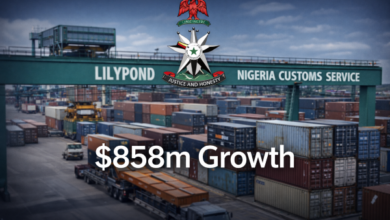Hike in Prices of Goods Looms as FG Raises VAT to 7.2 percent
 There’s likely to be further increase in the prices of goods and services across the country as the Federal Executive Council (FEC), presided over by President Muhammadu Buhari yesterday approved a 2.2% increase in Value Added Tax (VAT) from 5% to 7.2%.
There’s likely to be further increase in the prices of goods and services across the country as the Federal Executive Council (FEC), presided over by President Muhammadu Buhari yesterday approved a 2.2% increase in Value Added Tax (VAT) from 5% to 7.2%.
The FEC among other decisions also approved the 2020 budget of N10.07 trillion and the Medium-Term Expenditure Framework (MTEF) and Fiscal Strategy Paper (FSP).
Minister of Finance, Budget and National Planning, Zainab Ahmed, who made this disclosure while briefing State House Correspondents at the end of the meeting which started at 11am and ended at 6:12 pm, however, said its implementation will not start until approval by the National Assembly which is also expected to amend the VAT Act.
She said the Council directed immediate consultations with states, local governments, and other relevant stakeholders before taking effect in 2020.
The minister said: “We also reported to Council which has agreed that we start the process towards increasing VAT rate. We are proposing and Council has agreed to increase VAT rate from 5 percent to 7.2 percent. This is important because the Federal Government only retains 15 percent of the VAT, 85 percent is actually for the states and local governments and the states need additional revenue to be able to meet the obligations of the new minimum wage.
READ ALSO: VIDEO: Nigerian Returnee from S’ Africa Recounts Ordeal as 186 others return to Nigeria
“This process involves extensive consultations that need to be made across the country at various levels and also it will involve the review of the VAT Act. So, it is not going to be implemented immediately until the Act is reviewed.
“So accordingly, following these assumptions, the total revenue estimate in the sum of N7.5 trillion for the year 2020 and N2.09 trillion that will be accruing to the federation account and VAT respectively.
“There will, of course, be the distribution to the three tiers of government based on the statutory revenue sharing formula as defined in the Constitution and to this effect, it means the Federal Government will be receiving proposed aggregate of N4.26 trillion from the federation account and the VAT pool, while the states and the local governments are expected to receive N3.04 trillion and N2.27 trillion respectively.
“The expenditure for the year 2020 is in the total sum of N10.07 trillion. This is three percent higher than the approved expenditure in the 2019 budget that has been passed unto the law. The total expenditure includes statutory transfers, non-debt recurrent expenditures such as salaries and pensions and also the social intervention Programme.
“The 2020 budget has a debt service obligation estimated at N2.45 trillion and a sinking fund to retire maturing obligations issued to local contractors and other creditors in the sum of N296 billion. So there is a total sum of N3.43 trillion that is provided for personnel and pension cost inclusive of N218 billion for the top 19 government-owned enterprises in the country.
This represents an increase of N453 billion over the 2019 approved budgetary expenditure. This also implies a 40 percent of this recurrent expenditure to the projected revenue.”
Samson Oyedeyi










